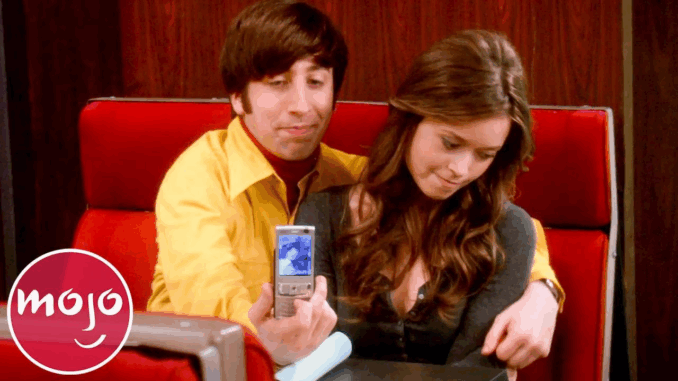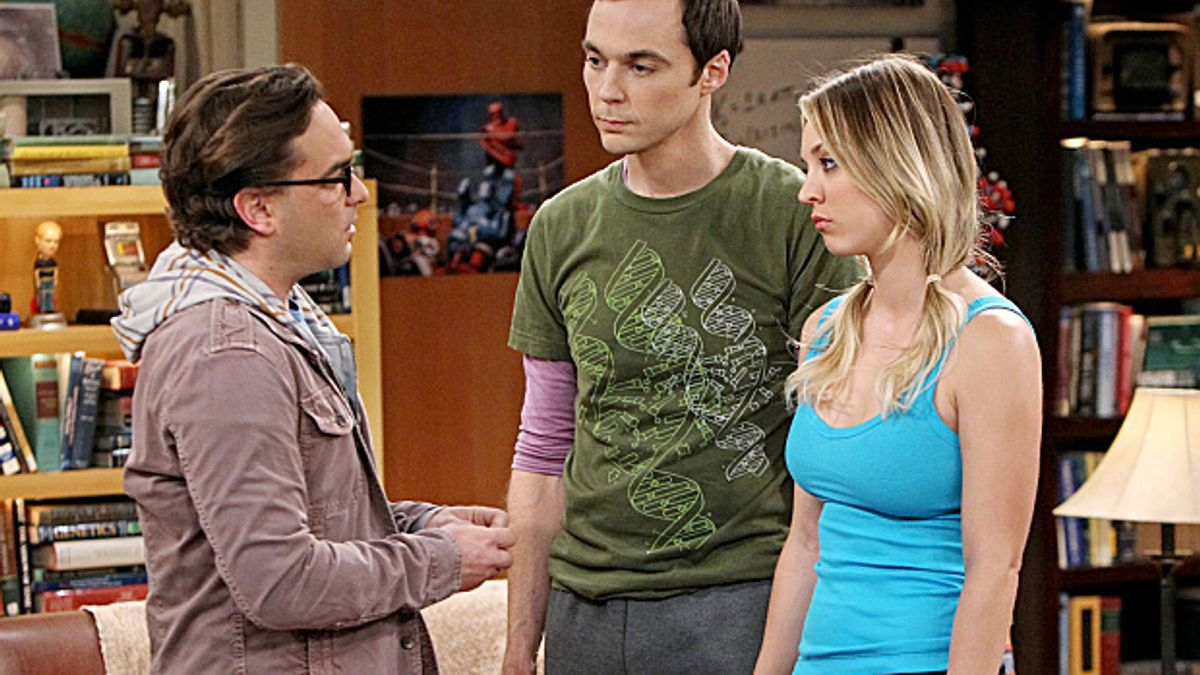
A sitcom that balanced intellect and emotion
While The Big Bang Theory is often remembered for its rapid-fire jokes and scientific jargon, its true strength lay in its emotional core. Beneath the sarcasm and sarcasm, the show explored deep themes like loneliness, personal growth, friendship, and the complexity of adult relationships — all with humor and heart.
The unlikely chemistry that made it work
Sheldon and Penny: A friendship no one saw coming
One of the most unexpectedly charming dynamics in the show was the platonic friendship between Sheldon and Penny. At first, they seemed like polar opposites: a rigid genius who struggles with empathy, and a socially savvy aspiring actress. But as the series progressed, their sibling-like bond offered some of the show’s most heartfelt moments. Penny’s ability to understand Sheldon, when others couldn’t, brought surprising depth to their connection.
Leonard and Penny: A slow-burn love story
Leonard and Penny’s relationship was central to the show’s emotional arc. It wasn’t a fairytale romance — they faced breakups, insecurity, and moments of miscommunication. But that’s what made it real. Their gradual journey from awkward neighbors to a married couple reflected the messiness and joy of long-term love, complete with compromises and personal growth.
Friendship as the emotional foundation
The group’s evolving dynamic
At its heart, The Big Bang Theory was a story about friendship. From game nights to comic book store visits, the characters shared a bond that remained constant even as their lives changed. The show managed to preserve the group’s closeness despite weddings, new jobs, and family developments — a testament to the writers’ commitment to character continuity.
Moments of quiet support
Amid the comedic chaos, the show never shied away from emotional moments. Whether it was Sheldon comforting Howard after his mother’s death, or Raj revealing his fear of being alone, the series gave space to vulnerability. These moments grounded the humor and reminded viewers why they cared about these characters.
A window into emotional intelligence

Amy Farrah Fowler and Sheldon’s transformation
When Amy was introduced, few expected her to become such a central figure. Her influence on Sheldon’s emotional development was profound. Through their relationship, viewers watched Sheldon learn to navigate intimacy, empathy, and even physical affection — changes that were slow, believable, and rewarding. Amy wasn’t just a love interest — she was a mirror to Sheldon’s growth.
Howard’s surprising depth
Initially portrayed as the group’s sleaziest member, Howard eventually became one of its most endearing. His relationship with Bernadette and his experience of fatherhood revealed a more mature, sensitive side. The transformation was subtle and well-paced, proving that even the most caricatured characters could evolve.
Why the show still resonates
Humor with heart
The Big Bang Theory didn’t rely solely on punchlines. It thrived because it allowed humor to coexist with sincerity. Characters were allowed to be silly and serious, sometimes within the same scene. That emotional range is what elevated it from a good sitcom to a memorable one.
An honest look at human connection
Through years of laughter, awkward moments, and genuine breakthroughs, the show offered an honest portrayal of how people grow — not alone, but together. It showed that friendships can be as transformative as romance, and that vulnerability is just as important as intellect.